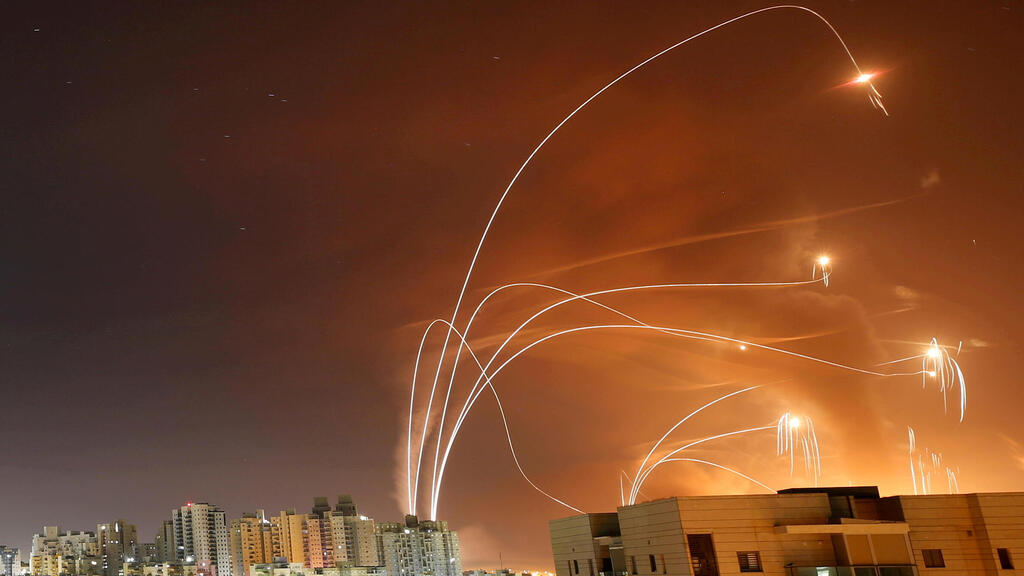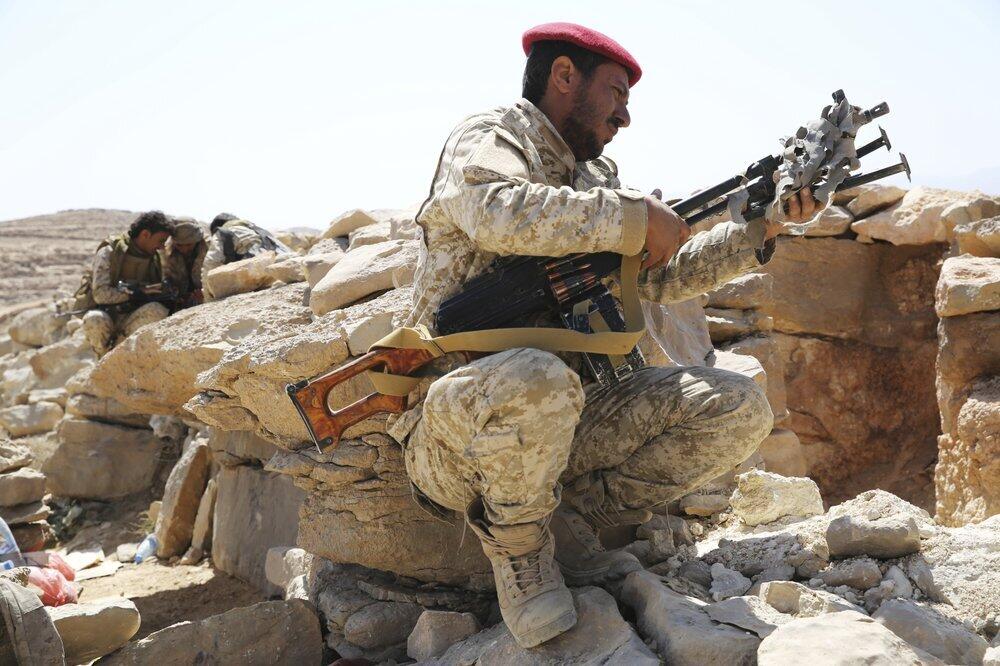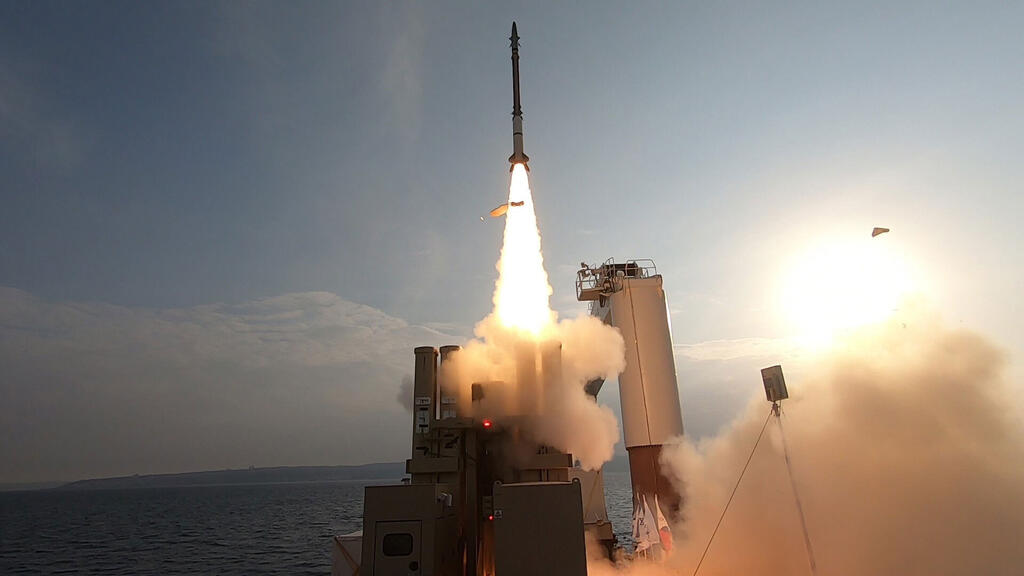Getting your Trinity Audio player ready...
According to a recent Wall Street Journal report, the U.S. will downsize much of its military presence in the Middle East, including eight Patriot air defense batteries and an anti-missile system called the Terminal High Altitude Area Defense (Thaad).
Most of the withdrawals will take place in Saudi Arabia, Iraq, Kuwait and Jordan, effectively removing U.S. regional allies' layer of protection against missiles and UAVs.
3 View gallery


The Iron Dome anti-missile system intercepts rockets launched from the Gaza Strip towards the southern city of Ashkelon, May 2021
(Photo: Reuters)
And while Saudi Arabia has strengthened its own defenses in the face of constant drone and cruise missile attacks from the Iranian-backed Houthi militias in Yemen, the main challenge for Riyadh still remains the protection of crucial sites.
Just two years ago, Iran pulled off a massive surprise attack on a Saudi refinery in the eastern part of the Gulf state, causing significant damage to its oil production capabilities.
The withdrawals also illustrate that the region is not a priority for Joe Biden's administration, and perhaps even serve as an overture to Tehran, whose new hardline president-elect Ebrahim Raisi appears less keen to resurrect the 2015 nuclear deal than his predecessor.
3 View gallery


A Saudi-backed Yemeni soldier unslings his machine gun on the outskirts of Sanaa, Yemen
(Photo: AP)
Given this new regional reality, Israel must act. The tactics of former prime minister Benjamin Netanyahu - lambasting the U.S. administration - will not change anything for the better, with direct and intimate talks with Washington the only way to protect Israel's vital interests.
But there is another option in play: Israel bolstering its cooperation with U.S. allies in the region. Some already have open diplomatic relations with Israel, while others maintain unofficial contacts.
This cooperation would require building on common interests, not by Israel taking a patronizing approach as some nations find themselves suddenly vulnerable. Neither side is engaging in charity by cooperating with former foes.
With U.S. air defenses off the table, Israel must offer its Iron Dome and David's Sling missile defense systems to Saudi Arabia, the UAE and Bahrain.
Both sides stand to gain much from this. The recipient countries acquire an efficient and proven multi-level rocket and missile defense layer, while Israel - which faces ongoing threats to the north and the south - gains greater capacity to further develop these systems.
Such an arrangement is of course not merely financial, but could be the start of unique strategic and technological cooperation that could genuinely shift the balance of power in the region and open the door for overt diplomatic ties.
It is no secret that Netanyahu and Saudi Crown Prince Mohammed bin Salman held talks on strategic issues, which have yet to lead to tangible results.
It is also no secret that Israel has offered its air defense systems to other countries.
The establishment of an aerial defense alliance between Israel and its neighbors is an act of diplomatic courage – and all those involved stand only to gain from it.
Dr. Ephraim Sneh is a former deputy defense minister and the CEO of the Center for Strategic Dialogue at Netanya Academic College


